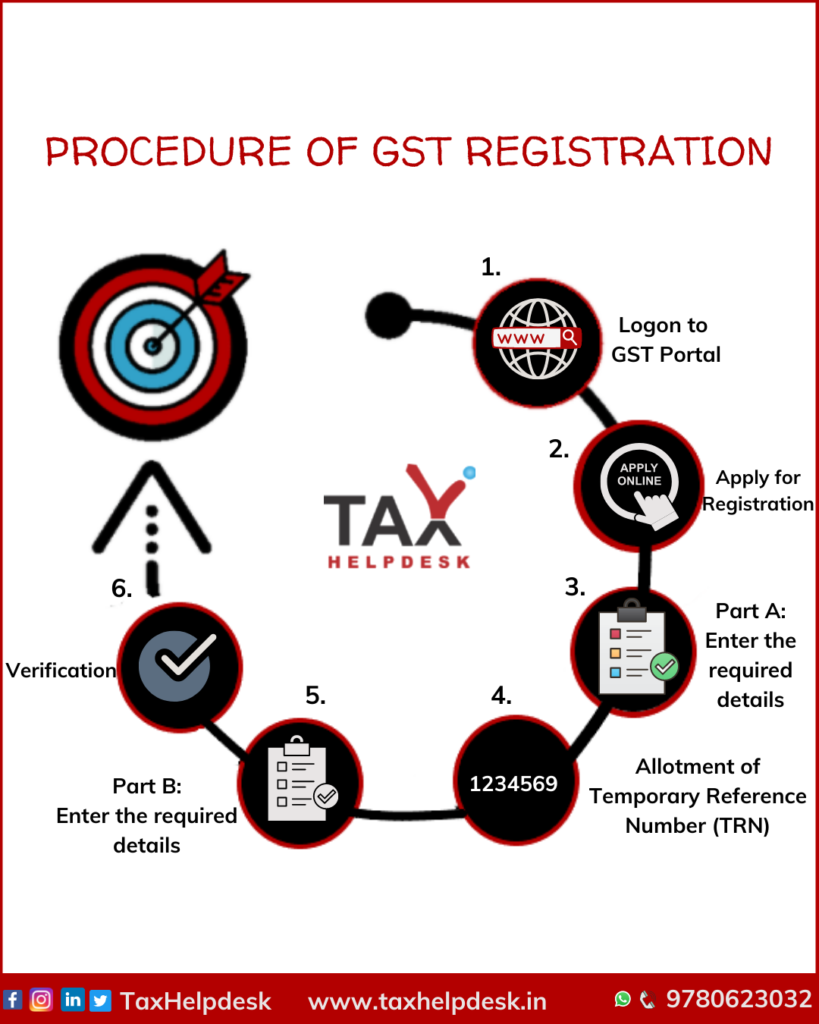Leading Tips for a Smooth Singapore GST Registration Experience
Leading Tips for a Smooth Singapore GST Registration Experience
Blog Article
The Ultimate Overview to Streamlining the GST Enrollment Process and Requirements for Small Company Owners

Comprehending GST Fundamentals
To comprehend the basics of the Product and Solutions Tax (GST) system, small organization proprietors have to initially comprehend its underlying principles and ramifications. GST is a value-added tax imposed on the majority of items and solutions for domestic consumption. It intends to enhance the taxation process by changing several indirect taxes enforced by the state and main governments. Under the GST regime, services are called for to gather and register tax obligation in behalf of the government, guaranteeing transparency and conformity.
One of the crucial concepts of GST is input tax credit, which allows companies to declare credit report for tax obligations paid on their purchases. Understanding these fundamental principles is vital for tiny organization owners to navigate the complexities of the GST system and guarantee compliance with the legislation.
Qualification Standards for Enrollment
Having actually established a foundational understanding of GST principles, local business owners should now satisfy certain eligibility requirements to proceed with the registration process. In India, entities engaged in the supply of items or solutions with a yearly accumulation turn over surpassing Rs. 40 lakhs (Rs. 10 lakhs for special category states) are required to register for GST. In addition, certain organizations such as those entailed in inter-state supply of items, laid-back taxable persons, and those called for to pay tax under the reverse fee device must register for GST irrespective of their turn over. Businesses that were signed up under the previous tax obligation program (VAT, solution tax, etc) are additionally mandated to sign up under GST. Agricultural organizations that just supply generate out of main production are excluded from GST registration. It is essential for local business owner to very carefully analyze their eligibility based on these criteria to ensure conformity with the law and prevent any fines for non-compliance.
Papers Needed for GST Enrollment

Simplified Registration Refine Steps
Following the collection and verification of the requisite papers, the registration procedure for GST can be navigated with a collection of streamlined actions designed to facilitate reliable conformity for small company proprietors. The initial step involves checking out the GST portal and picking the 'New Enrollment' choice. Consequently, the applicant must complete Part A of the GST REG-01 kind with details such as PAN, mobile number, and email address to acquire an OTP for verification. Once the OTP is obtained and browse around these guys gone into, a Short-term Reference Number (TRN) is created for additional proceedings. The next step needs submitting Component B of the kind with necessary service details, submitting supporting files, and completing the confirmation procedure utilizing DSC or EVC. Ultimately, upon successful confirmation, an Application Referral Number (ARN) is released, showing the completion of the GST enrollment procedure. By complying with these streamlined steps, small company proprietors can efficiently sign up for GST and ensure conformity with tax obligation guidelines.
Tips for Ensuring Conformity
To maintain regulatory adherence and functional honesty, diligent oversight and aggressive actions are crucial in ensuring conformity with GST demands for tiny company owners. Small service owners must remain upgraded with GST regulations, filing due dates, and any kind of adjustments in tax obligation rates to avoid charges and maintain a good standing with tax authorities. One vital tip for compliance is to maintain comprehensive and precise documents of all transactions, consisting of expenses, billings, and invoices connected to GST. Frequently integrating economic documents with GST returns can assist in determining and fixing any type of inconsistencies immediately. Additionally, performing regular interior audits or seeking professional support can make click to read more sure that the company is adhering to all GST policies appropriately. It is also important for little company proprietors to buy GST-compliant accountancy software that can improve the tax obligation declaring process and reduce mistakes. Finally, going to GST understanding workshops or training programs can boost understanding and compliance with GST policies, eventually profiting the business in the long run.
Conclusion
Finally, small company owners have to recognize the fundamentals of GST, satisfy the eligibility criteria, collect needed papers, and follow the streamlined registration procedure steps to make certain compliance. By simplifying the GST registration procedure and needs, local business proprietors can avoid fines and run their services smoothly within the legal structure - Singapore GST Registration. It is vital for little business proprietors to stay compliant and informed with GST laws to preserve a successful service operation
Tiny company proprietors seeking GST enrollment must guarantee they collect and send the needed documents to finish the registration procedure efficiently. The papers go right here required for GST registration commonly include evidence of business enrollment or incorporation, FRYING PAN (Permanent Account Number) card of the service entity, address and identity evidence of the promoters/partners/directors, photographs, address evidence of the place of company, financial institution account declarations or terminated cheques, and authorization forms. Attending GST understanding workshops or training programs can boost understanding and compliance with GST policies, inevitably benefiting the business in the long run.
By streamlining the GST enrollment process and demands, little organization owners can stay clear of charges and operate their organizations efficiently within the legal framework. It is vital for tiny business owners to stay certified and educated with GST laws to maintain a successful company operation.
Report this page